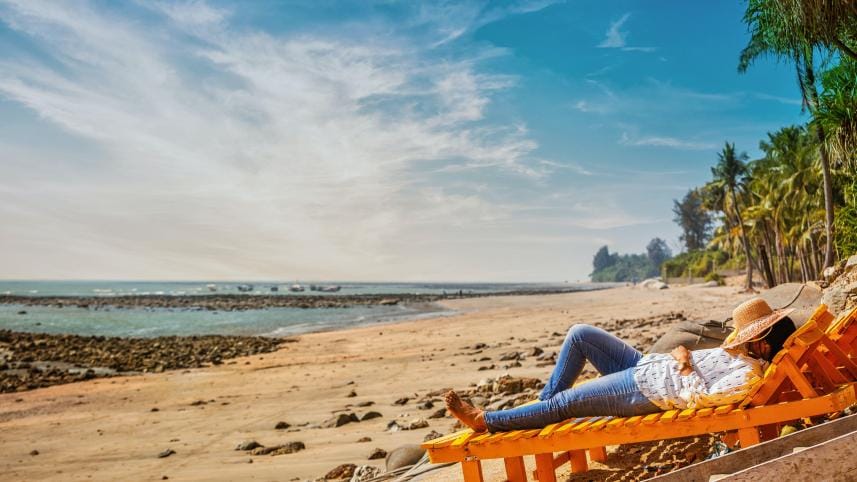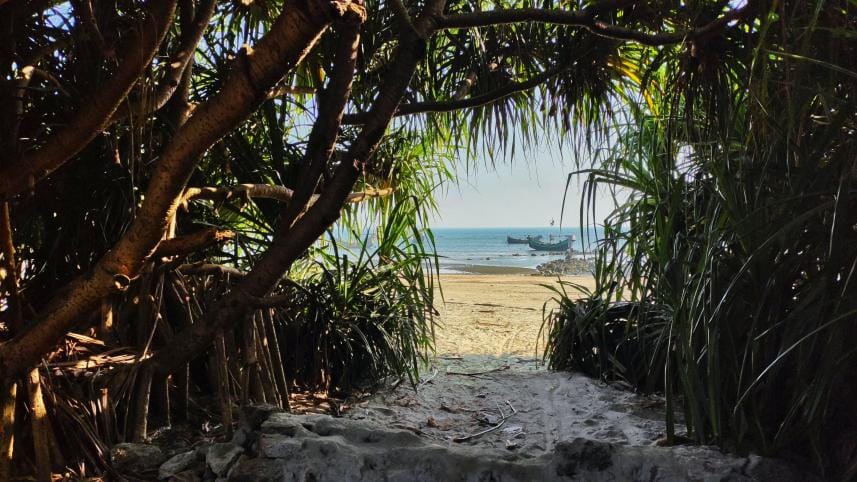Want to go to Saint Martin’s Island? These new rules are not optional

Saint Martin's Island, the darling of travellers at home and abroad, hasn't been doing well lately, as its endangered coral species — vital for maintaining the island's ecosystem balance — are under serious threat.
In light of this, the government had kept the island closed for several months for an uncertain period. Recently, on 1 October, the government reopened Saint Martin's for travellers — this time with a new set of ground rules.
The Ministry of Environment, Forest and Climate Change has issued a notification in this regard, introducing new rules and regulations to protect the island's precarious ecosystem, according to UNB sources.
From now on, if you plan to visit the island as a tourist, you must be aware of these rules, because ignorance will not be a valid excuse this time — given that they will be strictly enforced and mandated, as subject of official government directives under the Bangladesh Environment Conservation Act, 1995.
Given the fragile state of the island, the number of visits will also be kept to a minimum — only up to 2,000 tourists per day.
In addition, tourists may visit only during daytime, as overnight stays are prohibited throughout the months of October and November. Starting from January, overnight stays will once again be permitted.

Visitor schedules and island access will thus be strictly regulated. In fact, officials have further confirmed that no tourist movement will be allowed from February onward.
In essence, if you want to enjoy the diurnal activities, stroll on the sand, and sip on coconut water, enjoying the view of the sea on one side and coconut palms on the other, you only have until February.
However, if stargazing at night on an island beach is in your bucket list, consider visiting in January when night time visits will be allowed.
If you are someone who has never had the chance to visit the lone coral island of Bangladesh, this is arguably your limited opportunity to see it through your own eyes while you still can.
Moreover, without the official QR Codes of the Bangladesh Tourism Board, tickets will be considered counterfeit. For a valid entry, travellers must now purchase tickets containing both a Travel Pass and a QR Code online through the official portal of the Bangladesh Tourism Board.
Under the new guidelines, no vessels or speedboats will be permitted to the island without prior approval from the Ministry of Environment.
For the sake of protecting the island's tenuous ecosystem, visitors must refrain from activities such as creating noise pollution, holding barbecue parties, lighting fires of any sort, or turning on bright lights at night.
Furthermore, harming any part of the wildlife ecosystem is strictly prohibited, including but not limited to, marine turtles, birds, corals, crabs, and shellfish.
Many people tend to collect corals and shells as souvenirs or for selling, which directly damages the reef structure. Therefore, do not disturb the ecosystem or engage in buying or selling coral and shells.
Additionally, trespassing in the Keya fruit areas, as well as harvesting or trading the fruits, is strictly prohibited. Also, motorised vehicles, including motorcycles and sea bikes, are banned on the beaches.
Tourists are encouraged to carry their own reusable water flasks as a complete ban has been imposed on polythene and single-use plastic products. Hence, do not throw away any single-use plastic or other waste on the island, as it can contaminate the waters and suffocate the fishes.



 For all latest news, follow The Daily Star's Google News channel.
For all latest news, follow The Daily Star's Google News channel.
Comments